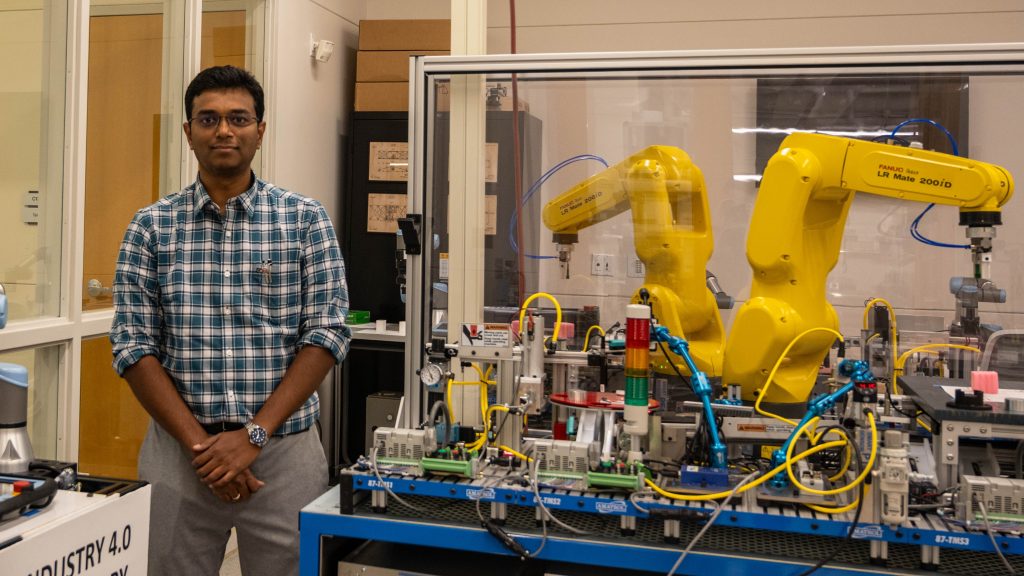November 03, 2025
An NSF-funded program will train students to design, optimize and manage collaborative automation systems shaping the future of manufacturing and service operations.

As industries increasingly integrate autonomous mobile robots (AMRs) into production and service environments, new questions arise: How can organizations design safe, efficient and human-centered systems that sustain productivity and reduce fatigue?
Through a newly awarded National Science Foundation International Research Experience for Students (IRES) project, the Department of Industrial and Systems Engineering is addressing these questions while providing students with global research experience.
The initiative, led by Associate Professor Sharan Srinivas, connects participants with leading researchers and industry experts in Germany to study and advance human-robot collaboration.
“Collaborative robots are designed to work alongside humans, not replace them,” Srinivas said. “This project emphasizes a human-centered approach to automation, ensuring technology enhances rather than displaces the workforce.”
Participating students will help develop AI-driven algorithms and optimization models to address real world challenges, involving AMRs in smart warehouses, hospital intralogistics, retail operations and automation planning in Industry 4.0 manufacturing environments.
Srinivas is recruiting seven students — graduate and undergraduate — from across the country for the 10-week summer research initiative.
The program will begin with a two-week intensive virtual boot camp, where students receive foundational training in modeling, optimization and human-robot interaction to prepare for their international research experience.
Upon completion, students will travel to the University of Passau in Germany, where they will conduct research with faculty mentors and collaborate with local companies integrating AMRs into production and service operations.
Each summer for the next three years, Srinivas will recruit seven participants, who will work on independent research projects. Each cohort will take on projects developed with German faculty and industry mentors that explore how AMRs can transform next-generation supply chains through human-robot collaboration and intelligent automation.
The goal is to train students to become skilled STEM professionals, give them a global perspective and help them develop new technologies for smarter, more efficient supply chains.
“This is a chance to be at the forefront of a technological revolution,” Srinivas said. “It’s an unparalleled opportunity to learn, innovate and make an impact.”
Ready to help shape the future of human-robot collaboration? Contact Sharan Srinivas for more details.